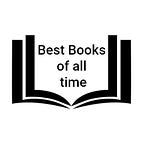Best Decision Making Books
In essence, Kahneman believes there are two types of thinking, characterized by system 1 (fast thoughts) and system 2 (slow thoughts):
- System 1: happen quickly and effortlessly, such as assumptions, first impressions or snap decisions.
- System 2: feel more effortful and use logic and reasoning to tackle harder questions and situations.
Take Away From the Book
- The use of statistics can be wildly misleading — framing bias. Don’t forget that a 1 in 5 chance is the same as a 20% chance. The way data is presented has a strong impact on how we feel — 90% fat-free feels better than 10% fat.
- Optimism can hurt us. We tend to overestimate favourable, pleasurable outcomes. This also leads to underestimating costs or other unfavourable outcomes.
- We’re likely to think those events that we remember more easily, are more likely to happen -> availability bias. Remember this when something is shown in the media. what you see is not all there is.
- Prospect Theory: our thinking is biased by an aversion to loss — eliminating the risk of losing is preferable to increasing the risk of winning.
- The brain wants to save energy and so often makes quick decisions with System 1 thinking, often laced with emotional reactions. Recognize this, and try to leave your emotions to the side.
“Nothing in life is as important as you think it is, when you are thinking it.” — Daniel Kahneman
The book is good, especially for those who struggle to take decisions. They won’t get any remarkable stride but they will definitely get to know the different instances where they can successfully step up. Instances are abundantly present in the book which is definitely a plus point.
3. Human action
Human Action is a fascinating book. It’s considered great by many who have read and studied it because it systemizes many insights from the Classical political economy, the Third School of Political Economy, and the marginalist revolution from the Mengerian wing, in a rigorous and often breathtaking way. It is more philosophic than most economic principles books, in most part because the foundation appears to be at odds with the explicit theoretical methods many economists say they practice (but often do not). I do not believe Mises was completely correct in his method, but he is often perceptive, and worth contrasting with the vast horde of economists, few of whom have as broad a learning and as deep an understanding of the problems of scientific method and the particular problems associated with studying human beings and other complex phenomena. Most are unphilosophic “normal science” abusers of their respective traditions, whether that be of mathematical formalism, statistical manipulation, or macroeconomic aggregation.
“Work will always be easy… it’s working with people that will be difficult.”
“The rightness of a decision will vary with time, what seems wrong today may in the future seem to have been the right decision. It all depends on our horizon.”
The Book Explain Following things
How to improve yourself
How to understand yourself better
How to understand others better
How to improve others — 7 models
5. Drive
Drive: The Surprising Truth About What Motivates Us
This book helped me crystallize some of my thoughts as to what I wanted professionally. Once the basic financial needs are met, what will motivate me to do the work. First — To be productive as quickly as possible. Second — To make an impact or make a difference at my current job. Do the job orders of magnitude better than the previous guy/gal that did my job. Finally, I want more autonomy as time goes by. Autonomy can be different things, such as Autonomy of time. In other words, a reasonable control over when to come to work and when to leave. It could also be Autonomy of Task, which is the ability and freedom to choose what work to be done. Another dimension of autonomy is the Autonomy of Technique, which would be the the freedom to decide to how to do the work and what tools to use instead of it being imposed .Finally, the Autonomy of Team, which is the ability & power to choose who to work with.
Smart Choices: A Practical Guide to Making Better Decisions
Despite the fact that decision-making is core to management profession, there are few books on the topic that are based on a scientific methodology. I would recommend this book for those trying to understand how heuristics and science can be combined to improve the probability of making right decisions.
“Principles” is the latest book by Ray Dalio — founder of Bridgewater, the world’s largest hedge fund. In this rather hefty tome of a book, Dalio offers an insight into the principles which he’s applied throughout his life and work, and his underlying reflections. He kicks off the book by explaining that “Good principles are effective ways of dealing with reality” and that “To learn my own, I spend a lot of time reflecting.”
8. Decisions : How to Master the Art of Decision-Making
This is a book written for anyone who needs clear directions to navigate life. The best part is that it is not only investment/ corporate/ business oriented like the majority of books right now available out there but also for everyday life. Taking into account the variety of hurdles faced by every individual in his/her daily life, the author lays down a step by step approach to face them alongwith resolving them rather than taking the ‘avoidance path’. The personal anecdotes make it all the more an engrossing read.
